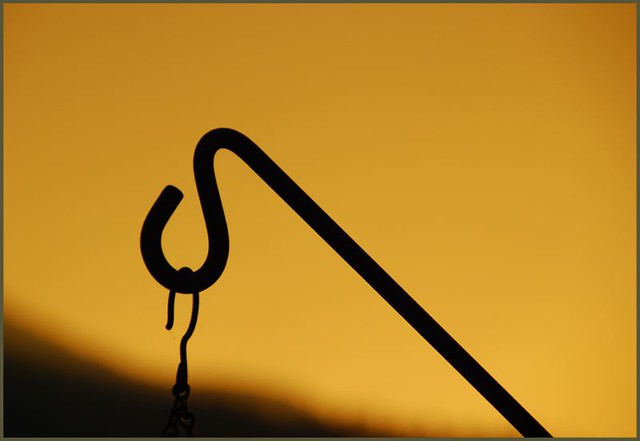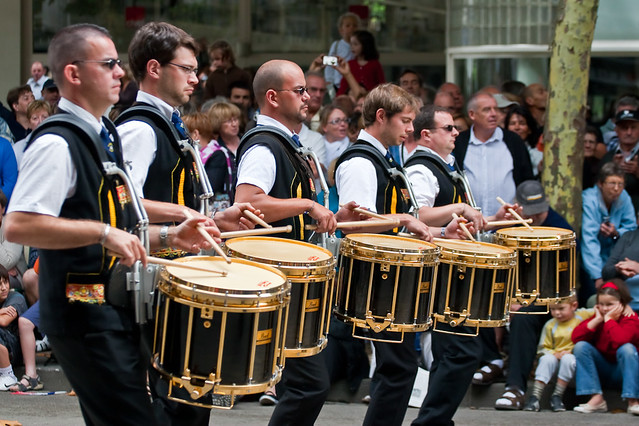Today we’re looking at words for sticks, rods and related things in Celtic languages.
Words marked with a * are reconstructions.
| Proto-Celtic | *slattā = staff, stalk |
|---|---|
| Old Irish (Goídelc) | slat = rod, lath, twig; ceremonial rod, staff; branch of a tree; scion, youth, stripling; yard (measure of length) |
| Middle Irish (Gaoidhealg) | slat = rod, lath, twig, branch of a tree, scion, youth, stripling, a yard |
| Irish (Gaeilge) | slat [sˠl̪ˠɑt̪ˠ/sˠlˠat̪ˠ] = rod, slender stick, cane, switch, wand, yard, outskirts slatach = rodlike, made of rods, wickered slatáil = beat with a switch or birch slataire = slip (of a person), sapling, tall supple youth slatamáil = (act of) birching slatfhear = slender supple man slatóg = small rod, twig |
| Scottish Gaelic (Gàidhlig) | slat [sl̪ˠahd] = long stick, rod, yard (measure), penis slatag = small branch, twig slat Ghàidhealach = Highland yard (8′) slat-tomhais = standard, yardstick slatan-draoidheachd = magic wand, fairy wand |
| Manx (Gaelg) | slat(t) = batten, birch, cane, mace, rail, rod, slat, stem, switch, verge, wand slat hendreil = lightning-rod slat hows(h)e = criterion, yardstick slat hummee = dipper, dipstick slattag = perch, small rod, small stick, stripe, swizzle stick, twig |
| Proto-Brythonic | *llaθ = rod, staff, stick, spear, beam, rafter, pole |
| Middle Welsh (Kymraec) | lath = rod, staff, wand, stick |
| Welsh (Cymraeg) | llath [ɬaːθ] = rod, staff, wand, stick, lath, spear, lance, spar, rafter, beam, offshoot, descendant llath Gymreig = Welsh yard (about 40 inches) llathaid = yard’s length, yardstick, length of rod, pole or perch, square yard lathen = rod, wand, staff, stick, lath llathennaf, llathennu = to measure, be critical (of) hudlath = magic wand |
| Middle Cornish (Cernewec) | lath = hook, hinge |
| Cornish (Kernewek) | lath = stick, staff, yard |
| Old Breton | lath = pole, rod |
| Middle Breton (Brezonec) | lazh, laz, lah = pole, rod |
| Breton (Brezhoneg) | lazh = slat (of a plough), board, batten |
Etymology: unknown – possibly from a substrate language of northwestern Europe [source].
Words that may be related include lath (a thin, narrow strip, fastened to the rafters) in English, Latte (batten, lath, slat) in German, lat (slate, lath, ruler, yardstick) in Dutch, and lata (can, tin, plate) in Spanish [source].
| Proto-Celtic | *mazdyo- = stick |
|---|---|
| Old Irish (Goídelc) | maide = stick |
| Middle Irish (Gaoidhealg) | maide, mada = stick, staff, beam, log, wood, timber |
| Irish (Gaeilge) | maide [ˈmˠadʲə/ˈmˠædʲə] = stick, bar, beam |
| Scottish Gaelic (Gàidhlig) | maide [madʲə] = piece of wood, stick, rod maide-brataich = flagstaff maide-làimhe = walking stick maide-làraich = floorboard maidean [madʲan] = small piece of wood / stick, small rod |
| Manx (Gaelg) | maidjey [ˈmaːʒə / ˈmaːjə] = stick, rod, pole, leve, bat, club, cue, lever, bar maidjey cassee = steering oar maidjey obbee = magic wand maidjey shooyl = walking stick |
Etymology: from PIE *masdo- (plank, board, pole) [source].
Words from the same PIE roots include mast in English, Mast (mast, pylon) in German, and most (bridge) in Czech, Polish and Slovak [source].
| Proto-Celtic | *sɸondos, *sfondo- = stick, staff |
|---|---|
| Old Irish (Goídelc) | sonn = beam, palisade, post, prop, stake |
| Middle Irish (Gaoidhealg) | sond, sonn, sunn = stake, post, beam, prop, club, palisade |
| Irish (Gaeilge) | sonn = stake, post, upright (in a structure), shaft, pole, stout handle (of a weapon) sonnach = paling, palisade, stockade |
| Scottish Gaelic (Gàidhlig) | sonn [sɔun̪ˠ] = champion, hero, post, stake sonnach [sɔn̪ˠəx] = paling, palisade, palisaded |
| Proto-Brythonic | *fonn = stick (?) |
| Old Welsh (Kembraec) | finn = stick, staff, rod fonnaul = pertaining to a stick or spear |
| Middle Welsh (Kymraec) | ffonn, ffon = stick, staff, rod effonnaut, ffonod = stroke with a stick, blow, stripe fonog = carrying a staff or spear, spearman |
| Welsh (Cymraeg) | ffon [fɔn] = stick, walking-stick, staff, crook, rod, club, cudgel, lance, bar, rung, stave ffondorio = to beat with a stick ffoniad = blow with a stick, beating ffonio = to beat with a stick, thrash ffonnod = stroke with a stick, blow, stripe cynffon = tail |
Etymology: from PIE *sph₂en- (to cut off; chip, shaving, log, length of wood) [source].
Words from the same roots possibly include spoon and sphene (titanite – a kind of mineral) in English, sponda (bank, shore, side, bedstead) in Italian, Span (chip, shaving, clipping) in German, and piena (cleat) in Finnish.
| Old Irish (Goídelc) | fé = rod for measuring a grave |
|---|---|
| Proto-Brythonic | *u̯ii̯ə-l- = rod |
| Middle Welsh (Kymraec) | gweyelin, guaylen, gwyeil, gwyalen = rod, twig, sapling, cane, stick, offshot gwialenffon, gwialen ffon = staff, stick, cudgel, pole guialennig = small rod or stick, switch gwiailffyn = stick, staff |
| Welsh (Cymraeg) | gwialen, gwyalen = rod, twig, sapling, cane, stick, offshot gwialenffon = staff, stick, cudgel, pole gwialennig = small rod or stick, switch, short line, measure of length, perch, pole gwialfa = wicker-basket, pannier, place where osiers grow gwialffon = stick, staff |
| Old Cornish | guaylen = rod, yard |
| Middle Cornish (Cernewec) | gwelen, gwelan = rod, yard (measure) gwel = rods, sticks gwelen = rod, stick |
| Cornish (Kernewek) | gwelen = cane, pole, rod, shaft, stick, wand gwelen frynkek = baguette gwelen hus = magic wand gwelennik = chopstick |
| Middle Breton (Brezonec) | guiall, guial, guyal = rods guialen = rod, wand |
| Breton (Brezhoneg) | gwial = rods, flexible wood gwalenn = pole, rod, yardstick gwalennaj, gwalenner = yardstick gwalennata = to pole, reprimand |
Etymology: related to Latin vieo (to bend, twist, plait, weave), from Proto-Italic *wijejō, from Proto-Indo-European *wh₁iéye-, from *weh₁y- (to twist, to twine). Words from the same roots include wire and garland in English [source].
Sources: Wiktionary, Am Faclair Beag, Online Manx Dictionary, Teanglann.ie, eDIL – Electronic Dictionary of the Irish Language, In Dúil Bélrai English – Old Irish glossary, Geiriadur Prifysgol Cymru, Gerlyver Kernewek, Dictionaire Favereau, TermOfis, English – ProtoCeltic WordList (PDF), Etymological Dictionary Of Proto Celtic





